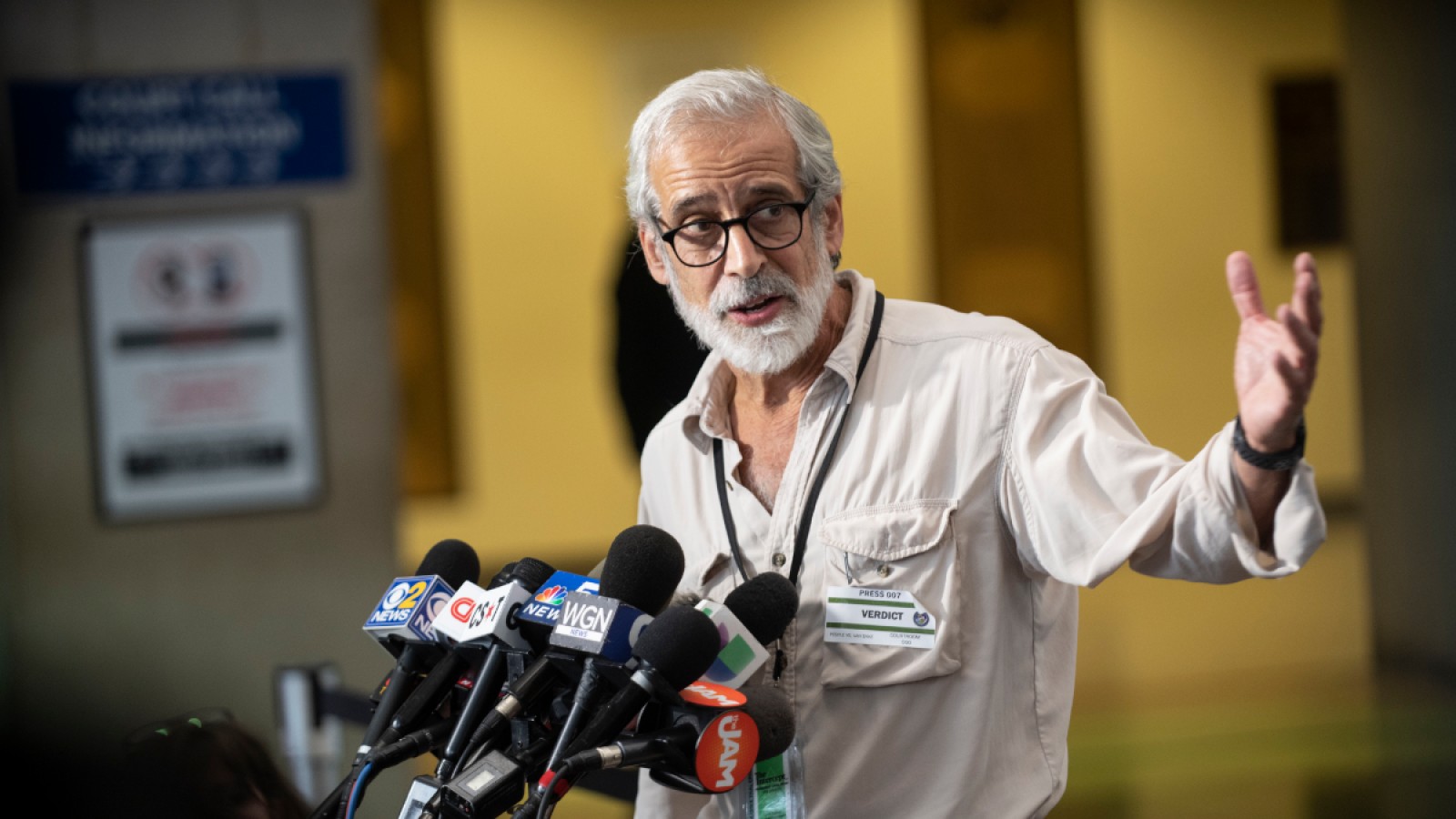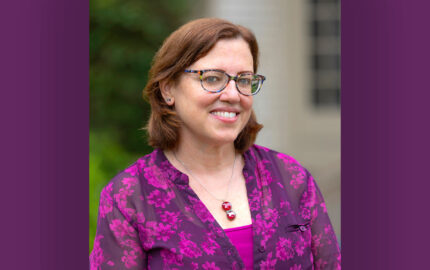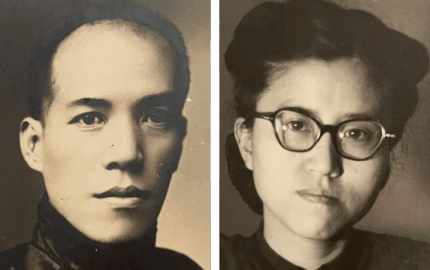Cambridge, Mass. — Author, journalist and human rights activist Jamie Kalven has been selected as winner of the 2022 I.F. Stone Medal for Journalistic Independence by the Nieman Foundation for Journalism at Harvard University.
Based in Chicago, Kalven was chosen for his body of work that includes investigations and ventures that have documented police abuse and impunity, provided access to vital public records and have told the stories of many of the underserved and underrepresented residents in long-neglected public housing projects.
Kalven founded the Invisible Institute, a nonprofit journalism production company on the South Side of Chicago that works to help citizens to hold public institutions accountable. It is home to the Citizens Police Data Project, an interactive database that collects and publishes information about police misconduct in Chicago and allows users to search for information across a range of data points; the Youth/Police Project, which chronicles youth-police interactions; Beneath the Surface, a project that investigates gender-based violence by police; and View From the Ground, an online reporting project published from 2001-2007 that documented the conditions in Chicago’s Stateway Gardens public housing development before it was demolished in 2007.
Kalven served as executive director of the Invisible Institute until September 2021 and now focuses on reporting and mentoring other journalists. Reacting to the award he said: “This unexpected honor gives me an opportunity to acknowledge a debt. From the beginning of my career Izzy Stone was an inspiration. His example emboldened me to strike out on my own path as a journalist. And his work offered a model of rigorous reporting on important stories, neglected by major media, hiding in plain sight. I am grateful to the Nieman Foundation for linking my name with his and those of the superb colleagues who have shared this honor.”
I.F. Stone Medal jury chair Ricardo Sandoval-Palos added: “For decades, Jamie Kalven has practiced journalism in the tradition established by his role model, I.F. Stone. And like a steady drumbeat, Jamie has produced stories that have held government and police accountable. Our jury was unanimous in voting this year’s medal to Jamie in recognition of the impact of his work and the infrastructure he’s established for up-and-coming independent investigative journalists.”
Long before it became common practice in newsrooms, Kalven recognized the importance of developing collaborative journalism projects and amplifying citizen voices.
The Invisible Institute shared the 2021 Pulitzer Prize for National Reporting with the Marshall Project, the Alabama Media Group and the Indianapolis Star, for a series about the use of police dogs on civilians. The Institute was also a finalist in the audio reporting category for Somebody, a seven-part series on institutional failures in investigating the murder of 22-year-old Chicago resident Courtney Copeland.
With a nod to the award’s namesake, I.F. Stone Medal jury member Michael Riley commented: “One of the things I like so much about Jamie Kalven is the many, often unorthodox ways he’s found to do journalism. He is cut from the classic Izzy mold, working for years from the edges, and initially with the barest institutional support, while managing both to surface amazing journalism and to support the work of other young journalists doing the same. Over several decades he has had a remarkable influence in Chicago and nationally through constant experimentation and innovation, without the advantage of belonging to a mainstream media organization.”
In 2014, Kalven was the plaintiff in the landmark Kalven v. Chicago case, in which the Illinois appellate court ruled that documents bearing on allegations of police misconduct are public information.
Kalven’s article “Sixteen Shots,” published in Slate in February 2015, examined the police shooting of 17-year-old Laquan McDonald the previous fall. Kalven discredited the official report of the killing by obtaining the autopsy report and pushing for the release of a video of the incident. Kalven received the 2015 George Polk Award for local journalism for his coverage of the story and he co-produced “16 Shots,” a Showtime documentary about the McDonald case that won the 2020 Emmy Award for Outstanding Investigative Documentary. Kalven additionally won the 2016 Ridenhour Courage Prize for his work.
In 2016, he published “Code of Silence,” a series in The Intercept that exposed the criminal activities of a team of corrupt Chicago officers and has contributed to the exonerations of 133 individuals. That reporting won the 2017 Hillman Prize for Web Journalism.
Kalven is the author of “Working With Available Light: A Family’s World After Violence,” about a violent attack on his wife, Patricia Evans, and his family’s reckoning with the resulting trauma. He also edited “A Worthy Tradition: Freedom of Speech in America,” written by his father Harry Kalven, Jr..
Established in 2008, the I.F. Stone Medal honors the life of investigative journalist I.F. Stone and is presented annually by the Nieman Foundation for Journalism at Harvard to a journalist or journalists whose work captures the spirit of journalistic independence, integrity and courage that characterized I.F. Stone’s Weekly, published from 1953 to 1971. For more information about I.F. Stone, visit www.ifstone.org.
A committee of journalists oversees nominations and the selection of an annual I.F. Stone Medal winner. The committee is chaired by PBS public editor Ricardo Sandoval-Palos. Other members are Myra MacPherson, journalist and author of the biography “All Governments Lie: The Life and Times of Rebel Journalist I.F. Stone; Jasmine Brown, a senior producer in the race and culture unit at ABC News’ “World News Tonight with David Muir”; Phillip W. d. Martin, a senior investigative reporter for WGBH News; Michael Riley, an investigative reporter for Bloomberg News and Businessweek magazine; and Bernice Yeung, managing editor of the Investigative Reporting Program at UC Berkeley’s Graduate School of Journalism.
The Nieman Foundation for Journalism at Harvard educates leaders in journalism and elevates the standards of the profession through special programs that convene scholars and experts in all fields. More than 1,600 journalists from 99 countries have been awarded Nieman Fellowships since 1938. The foundation’s other initiatives include Nieman Reports, a website and print magazine that covers thought leadership in journalism; Nieman Lab, a website that reports on the future of news, innovation and best practices in the digital media age; and Nieman Storyboard, a website that showcases exceptional narrative journalism and explores the future of nonfiction storytelling.



